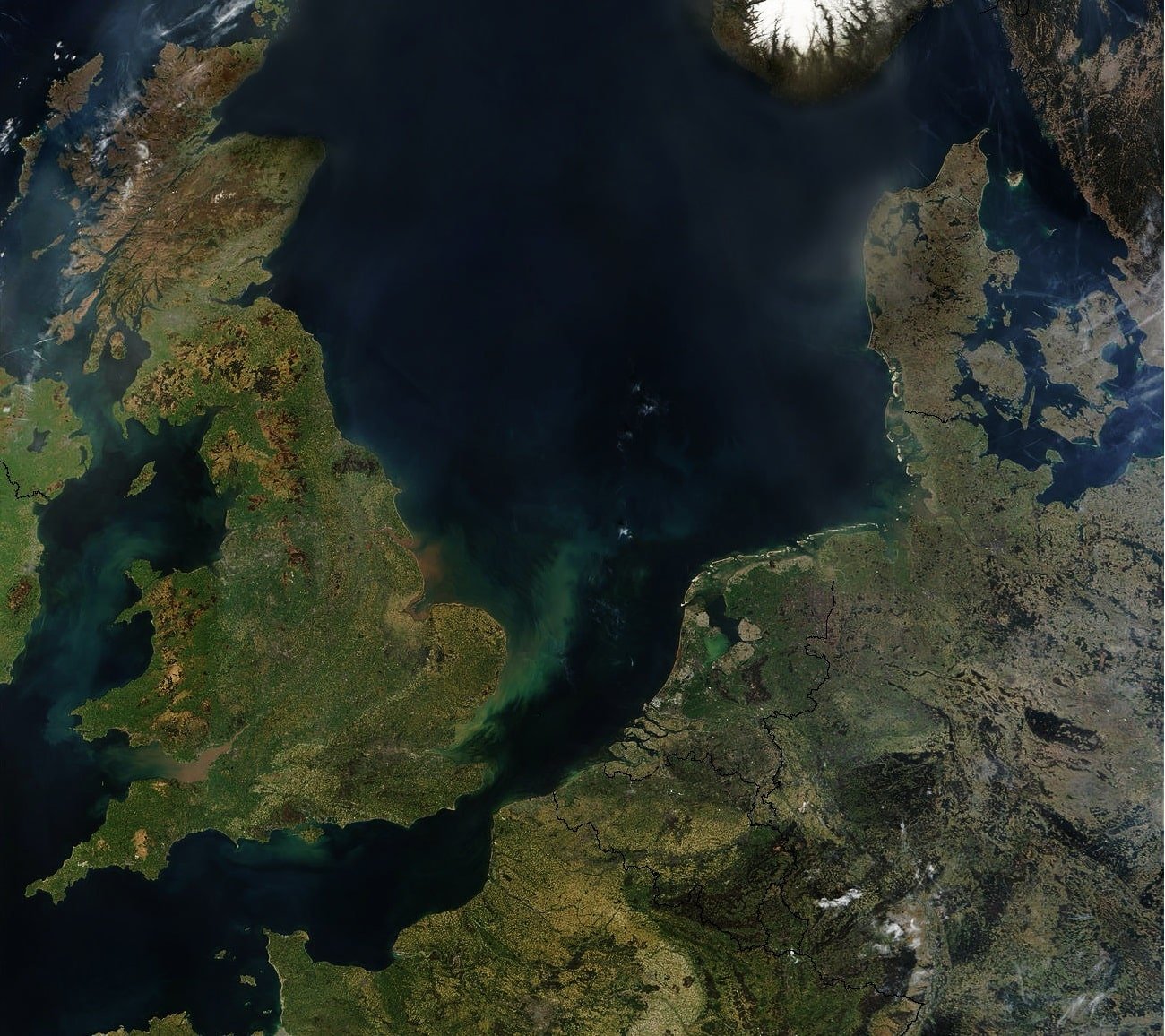

Modern research has revealed that there was a vast landmass in the North Sea thousands of years ago. This connected Britain to Germany, Denmark, and other parts of northern Europe. Could this large area of land now known as Doggerland, which disappeared into the sea thousands of years ago, have been the real Atlantis?
In the late nineteenth century, scientists first realized that the area of the North Sea between Britain and Germany had once been dry land. Throughout the 20th and now 21st centuries, we have learned a considerable amount about this lost region.
Scientists believe that this portion of the North Sea was exposed to the open air during the Pleistocene Era of the Ice Ages, when the sea levels were lower. This is believed to have been a result of the formation of the large ice sheets across the world at that time.
Therefore, for several thousand years at least, there was arid terrain in the area between Britain and Germany. Excavations have revealed copious amounts of evidence of land animals believed to have dwelled there at the time. In fact, researchers have even found traces of human activity in Doggerland.
Since this vast area is now submerged, comparisons with Atlantis have been inevitable. In principle, Doggerland is comparable to Plato‘s descriptions of the land of Atlantis, which he wrote about in Timaeus and Critias, two dialogues of the fourth century BC.
According to this legend, Atlantis was an island that had been inhabited at one point in time. However, it then disappeared into the sea. Hence, by virtue of being a portion of land that was submerged, Doggerland does bear some similarities to Plato’s tale.
Some investigators go further than simply comparing Doggerland to Atlantis in principle. One theory is that Doggerland may have actually been the inspiration for Plato’s story. In other words, this theory proposes that Doggerland was Atlantis.
To comprehend whether this is plausible, we need to examine how Doggerland came to be consumed by the sea.
In Plato’s story of Atlantis, he states that this island disappeared into the sea “in a single day and night of misfortune.” How well does this match up with what we know about Doggerland?
According to scientists, Doggerland was not erased from the map in a single day and night. Rather, it gradually went underwater. Scientists believe this process took place over several thousand years, beginning approximately in the year 10,000 BC and reaching near completion by 6500 BC.
Clearly, if these conclusions from scientists are correct, then the fate of Doggerland was quite different to that of Atlantis. While both lands did disappear into the sea, this did not happen rapidly in the case of the former.
However, we do need to acknowledge that there is evidence of a catastrophic tsunami striking Doggerland at one point. Scientists believe that the Storegga Slides—underwater landslides off the coast of Scandinavia—occurred around the year 6200 BC.
These landslides resulted in massive tsunamis which would have devastated regional coastal areas. Evidence of this has been found in Scandinavia and Scotland. It is entirely possible that this also led to devastation on the vestiges of Doggerland that existed in that era.
Nevertheless, scientists do not believe that these tsunamis resulted in the permanent submergence of these last traces of Doggerland. Therefore, this is still unlike the story of Atlantis, although it must be admitted that it bears interesting resemblance.
Another obvious connection between Atlantis and Doggerland is the fact that it is not within the Mediterranean region. This ties in with Plato’s statement about Atlantis being before the Pillars of Heracles. Most commentators understand this to mean that Atlantis was outside the Strait of Gibraltar.
Although there are clearly some similarities between Doggerland and Plato’s Atlantis, the former cannot have been the inspiration behind the legend. For one thing, the primary point of the story is that it is about the war that Atlantis fought against Athens. In fact, Atlantis was said to have fought a war against essentially the entire Mediterranean, with Athens eventually defeating it.
Doggerland was already long gone by the time the ancient Greek civiliation emerged. Therefore, there cannot have been a war between the Greeks and the inhabitants of Doggerland since they were not contemporaries.
Furthermore, Atlantis was said to have been a rich and powerful civilization with large temples, statues, construction projects, and harbors. Archaeologists have not found any of this in association with Doggerland. While it was evidently a fertile region, Plato’s description of Atlantis involves far more than this.
